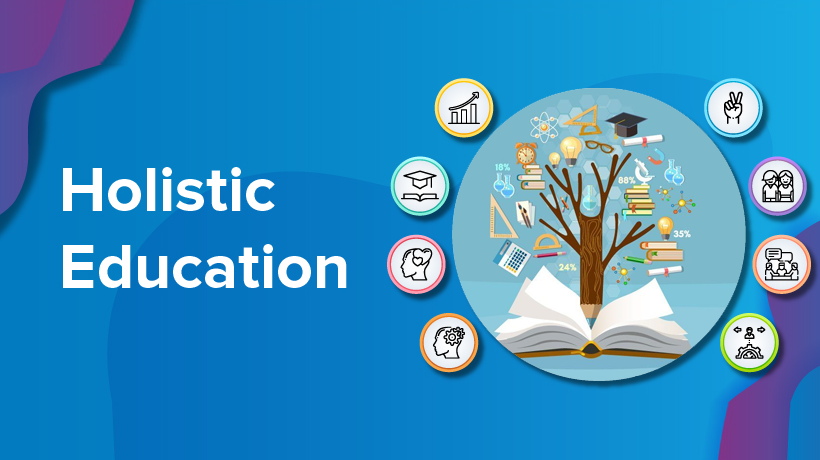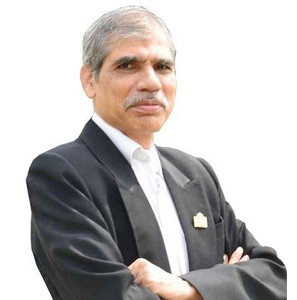
Education 5.0 : Inclusivity of Human Centric Holistic development for promoting progressive wellbeing
Abstract:
The aim of dynamic and comprehensive concept of education is always for the holistic development of the generation. Education is to bring up and nourish the individual for assuring survival of human race, maintaining intellectual, cultural, and societal tradition for civilization for mankind. The information, knowledge and experience from the past education and skill that has been gathered has greatly expanded the progress of social, economic, and technical innovation throughout the world. Thus, humans always require education for progress and a better life than what it is now. The education modification from education 4.0 has incorporated artificial intelligence, machine learning, Internet of things and various skill enhancement applications which is modified in education 5.0 with human perspective including social, emotional, and holistic abilities to promote harmony in individual, family, society, nature, and environment for fulfilling the basic aspiration of human beings. Education 5.0 will provide efforts to shape the future of humans that will be in the form of combinations of technological innovation, human well being and sustainable development. It is the chain that has linked digital, innovation and technological knowledge with value, ethical, social, and emotional education to promote well being to create equitable and just society. Hence the proposed education will promote collaborative, ethical, creative and conflict free system and work in society.
Introduction:
Education is a lifelong learning process that helps individuals to develop their intellectual capacities. It helps in creating perfect human beings who are refined, committed, civilized, cultural, and educated. From education the individual acquires vision, knowledge, experience, competence, and a positive attitude through various methodical approaches. With the increase of amount of information, knowledge, experiences, and skills there is progress and growth in culture and civilization. This has given a pace for education and its importance in human life. The aim of the Education 5.0 is to develop the education system for the development of well-rounded individual witch touches all aspects of human life i.e. cognitive skill, emotional intelligence, social awareness, and ethical values. Education 5.0 is highly focused on human centric solutions through holistic education to promote overall well-being, inclusivity, and ethical consideration. As a matter of fact, education encompasses biological, social, spiritual, and cultural facets of human existence which help humans to develop to the greatest extent. To develop these skills and to produce a full human harmonious personality, Education 5.0 incorporates technical innovation and human perspective to find an absolute balance. Education has power to change the individual thoughts and behavior by constantly spreading new concepts and information. Proper education will bring understanding and clarity of living with the technical innovations for holistic wellbeing of humans.
Content of Holistic Perspective:
To turn viewpoints to the Education 5.0, a well define holistic content is essential for incorporation in the education system. The content should be universal, rational, verifiable and should lead to harmony. The holistic perspective education based on ‘Co-existential Philosophy’ i.e. on natural laws and reality in a way that every human can understand them in his/her own right and live with this understanding which should results in living with simplicity, generosity, kindness & benevolence. The content should provide clarity about human aspiration and the program for its fulfillment. Humans need to have simple processes to understand self and its participation in family, society, and nature. The holistic content should include value education, assessment, observation, analyzing the behavior, action, practice, realization, and participation of individual thus to have a universal resolution to current existential, personal, familial, social & ecological dichotomies. The content should be which can bring exploration of all possible dimensions of human existence i.e. understanding self, family, society, nature, and existence.
Outcome of Holistic Perspective:
The aim of all human conduct with education is to have harmony and peace at all four levels, i.e. in self, in family, in society and in nature. Humans always strive to understand everything since the time of inception, but it is not possible for humans to live meaningfully without understanding their own selves, the world we live in, and our relationship with this world. We as humans undergo education and study because we want to ‘understand’ and live with ‘humanness’. The ultimate outcome of all the human study, education and experience is ‘consciousness transformation’ or awakening. When we are awakened, we can ‘see’ the natural order of everything that exists. We thus have a resolution for all states we live in i.e. in self, family, society, and nature. This is happiness, health and wealth with ‘human-consciousness’,.
Conclusion
Education 5.0 has included all content of Education 4.0 with additional incorporation of holistic humanized teaching focused on understanding all the dimensions of human existence for improving the life of individual, family, and society. The technology needs to be updated for supporting holistic wellbeing at all social spheres like work, behavior, health, education, emotion etc. Education 5.0 highlights the need of human beings in both domains, i.e. skill and values. Hence, education reform should bring understanding the complementarity of values and skills. The value domain helps in identifying ‘what & why to do in right direction’ and skill domain helps in understanding ‘how to do with optimum techniques. The ‘Co-existential Philosophy’ with universal, rational, and verifiable content should become part of education for increasing exploration of individual at all possible dimension of human existence i.e understanding self, family, society, nature, and existence.
References:
- 1. M. Al-Emran, S. I. Malik, and M. N. Al-Kabi, “A survey of internet of things (IOT) in education: Opportunities and challenges,” Toward social internet of things (SIoT): Enabling technologies, architectures, and applications: Emerging technologies for connected and smart social objects, pp. 197–209,2020.
- 2. M. ur Rahman, V. Deep, S. Rahman, et al., “Ict and internet of things for creating smart learning environment for students at education institutes in India,” in 2016 6th International Conference-Cloud System and Big Data Engineering (Confluence). IEEE, 2016, pp. 701–704.
- 3. A. D. Lantada, “Engineering education 5.0: Continuously evolving engineering education,” International Journal of Engineering Education, vol. 36, no. 6, pp. 1814–1832, 2020.
- 4. N. N. Mustafa Kamal, A. H. Mohd Adnan, A. A. Yusof, M. K. Ahmad, and M. A. Mohd Kamal, “Immersive interactive educational experiences–adopting education 5.0, industry 4.0 learning technologies for Malaysian Universities,” in Proceedings of the International Invention, Innovative & Creative (InIIC) Conference, Series, 2019, pp. 190–196.
- 5. Gaur, R R., Asthana R., Bhagaria G P. A Foundation Course in Human Values and Professional Ethics, 2nd Revised Edition, Excel Books, New Delhi, 2019.
- 6. Gaur, R R., Asthana R., Bhagaria G P. Teacher’s manual for A Foundation Course in Human Values and Professional Ethics, 2nd Edition, Excel Books, New Delhi, 2019
- 7. Nagraj, A., Arogya Shatak, Jeevan Vidya Prakashan, 1st edition, 2017
- 8. Nagraj, A., Manav Vyavahar Darshan, Jeevan Vidya Prakashan, 3rd edition, 2003.
- 9. Nagraj, A., Vyavaharvadi Samajshastra, Jeevan Vidya Prakashan, 2nd edition, 2009.

